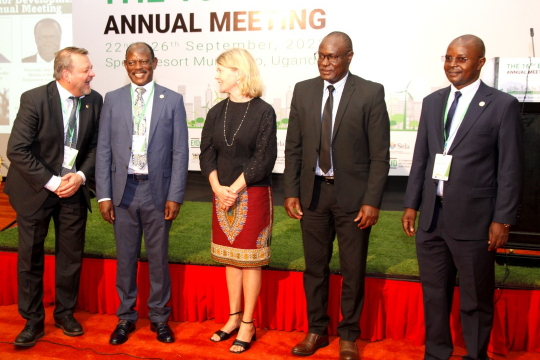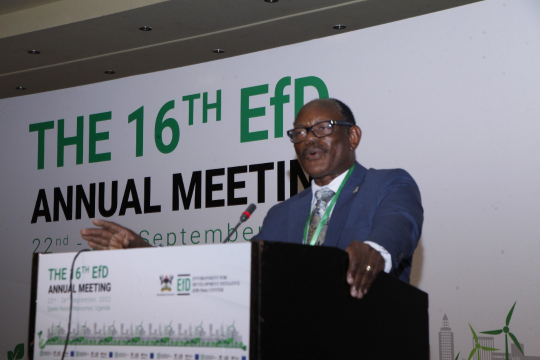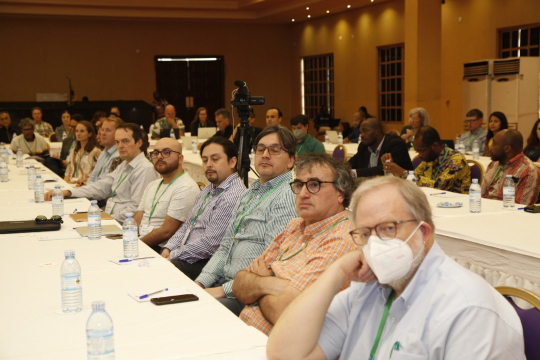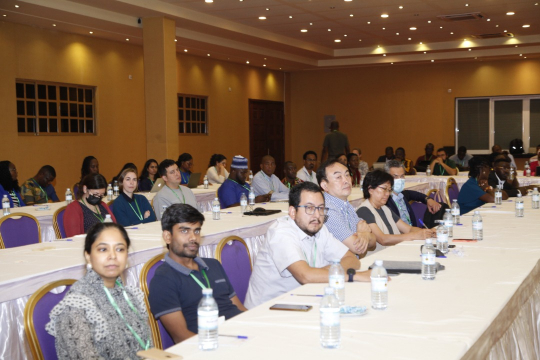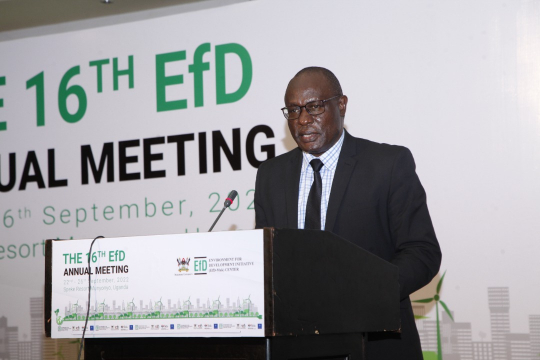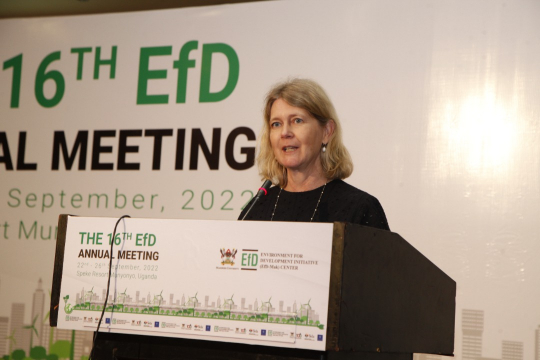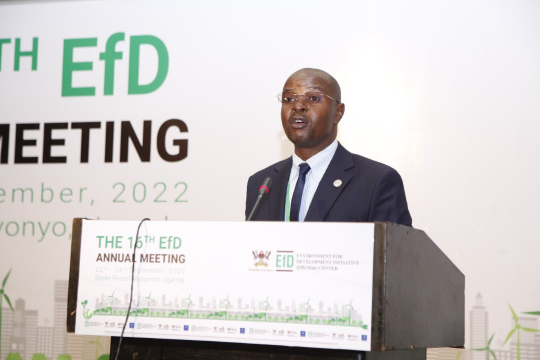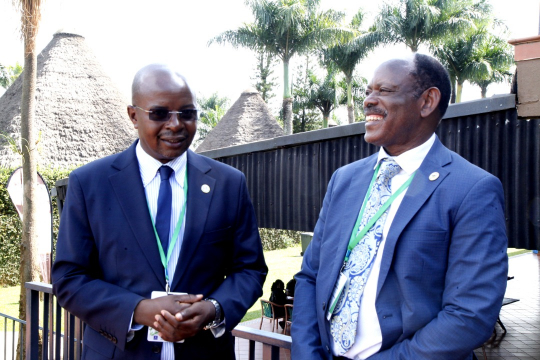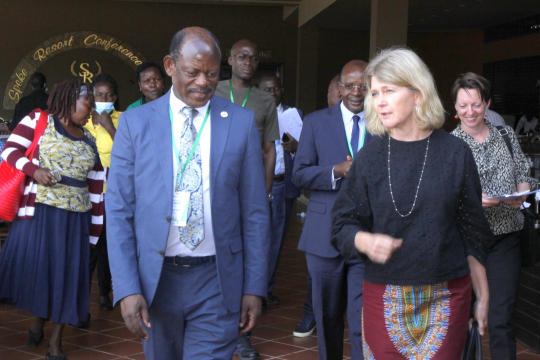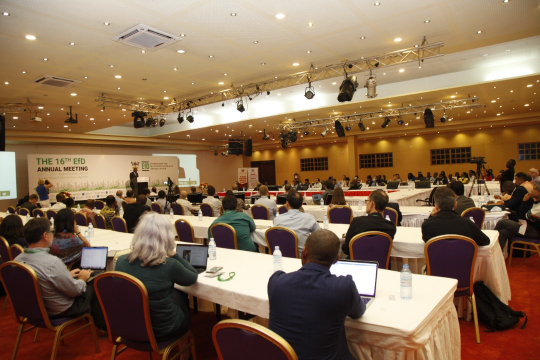Policymakers in Uganda were urged to take measures to mitigate environmental degradation or else, risk facing serious consequences.
The appeal was made during the opening of the 16th EfD Annual meeting (22nd-26th September 2022) hosted by Makerere University at the Speke Resort Munyonyo in Kampala Uganda.
The opening ceremony moderated by the EfD Global Hub Manager Gunnar Köhlin and was graced by Uganda’s Minister for Water and Environment represented by the Commissioner for Water, Julius Mafumbo, the Swedish Ambassador to Uganda, Maria Håkansson and the Vice Chancellor of Makerere University Professor Barnabas Nawangwe.
Barnabas Nawangwe expressed concern over the continuous use of firewood and charcoal as the main source of energy in Uganda amidst the increasing population growth.
“Deforestation is a big issue leading to environmental degradation. The more the population increases, the more trees we are cutting”, he said.
The other urgent measure according to him is the protection of water bodies.
“We must protect our water bodies because all lives depend on water. We are polluting the water bodies with a lot of things including plastics, polythene bags, and sewage and we must come up with alternative solutions.”
The Vice-chancellor also warned of the impact of plastic bags.
“I don’t know why we cannot take a stand and say no to plastic bags. How come all our neighbors have said no to plastic bags? If we don’t do that very quickly, the plastic bags are going to destroy our agricultural land and soil on which our people survive,” Barnabas Nawangwe said.
He reported that the university has a new strategic plan geared towards making the university research-led. The conference addresses directly the university's strategic plan for research on different environmental issues.
“This is a very big conference and we are really honored we were given the opportunity to host it and it’s an opportunity for us to increase awareness on the issues of environmental changes.”
Government efforts to curb ecosystem degradation
Representing the Minister of Water and Environment, the Commissioner for Water Julius Mafumbo said that Uganda has been experiencing unprecedented environmental challenges including floods, landslides, and droughts with a lot of impacts.
“Lives, big investments, and peoples’ livelihoods are being destroyed because of disasters associated with environmental degradation. This has been because of inadequate information, poverty, and impunity among others,” Julius Mafumbo said.
People are settling on highly fragile ecosystems, constructing on steep mountain slopes, wetlands, riverbanks, and lakeshores leading to degradation.
Although Uganda heavily relies on its environment and natural resources, the commissioner said, the country doesn’t seem to know how to use them correctly since a lot of investments are not informed by research.
“To restore, protect and maintain the natural ecosystem, the Ministry has come up with a national restoration action plan to guide the restoration of degraded ecosystems in the country; reviewed policies and laws to reduce the loss; and increased community awareness campaigns on the importance of these natural ecosystems,” Julius Mafumbo said.
Facilitating links between research and policymakers is the key
The Swedish Ambassador to Uganda Maria Håkansson observed that Uganda faces many challenges but the country has great potential.
“From the Swedish point of view, we are working on forestry where we see some positive trends currently. We are also working on energy and renewable energy. The use of charcoal for cooking is causing deforestation and negative health impacts is a link between environmental degradation, climate change, and health,” she said.
She noted that the Annual meeting is about exploring possibilities to facilitate the linkages between knowledge that is already there, research, and policymakers.
“We actually use the research and the knowledge we have to make wise decisions for the benefit of the Ugandan people”, she added.
The Swedish International Development Cooperation Agency, Sida, has been supporting Makerere in building capacity for environmental economists through specific programs for the region, training civil servants in the different ministries through the EfD network.
EfD's aim is environmental economics research to inform policymakers
The Director EfD-Mak center Professor Edward Bbaale said that the main focus of the EfD network is to conduct research in environmental economics and natural resources to inform policy on the right methods for managing and harnessing the environment and natural resources.
Edward Bbaale reported that there are a number of environmental problems originating from environmental degradation that threatens development and economic growth.
“Global warming is due to climate change. In Uganda, the rainy seasons are no longer predictable and in many cases, this results in huge losses for the farmers,” Edward Bbaale said.
He explained that EfD network is conducting research by trying to attach numbers to the natural resources while doing environmental valuation so that policymakers can understand the impact of destroying the environment.
He described climate change as a monster that has come to the world adding that environmental economists are devising means to include climate risk variables in macroeconomic modeling to be able to tell the loss of GDP as a result of climate change.
“The network’s studies go deeper into understanding issues of climate change, water for domestic use and production, forest issues, wetlands, and other issues which we wish to protect through producing evidence.
Policymakers work with numbers and want to understand what would be the loss to the country for example if a wetland is cleared to establish a factory and the long-term economic loss to the country if forests are destroyed”, Bbaale explained.
Bbaale appreciated the EfD Global Hub and the entire EfD Network for the confidence put in Makerere by establishing an EfD Center at the University, coming 4 years now, noting that this confidence has been reinforced by giving the university the opportunity to host the EfD Annual Meeting, the very first physical meeting after two years of Covid-19 disruptions.
The meeting sponsored by Sida brought together over 100 researchers from EfD centers across the world, their collaborators, and other key stakeholders to exchange research ideas, discuss research proposals, and present results from EfD projects.
The Annual meeting will be ended with a policy day at Makerere University slated for 27th September 2022 under the theme Green Financing and Capacity Gaps: Implications for Energy Access and Transitions.
See additional reporting of the opening ceremony here and get additional information.
https://m.youtube.com/watch?v=XWbQf4ZAGro
https://chimpreports.com/prof-nawangwe-rallies-govt-locals-to-protect-lake-victoria/
Report by;
Jane Anyango
